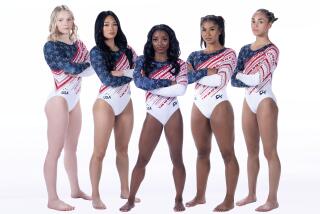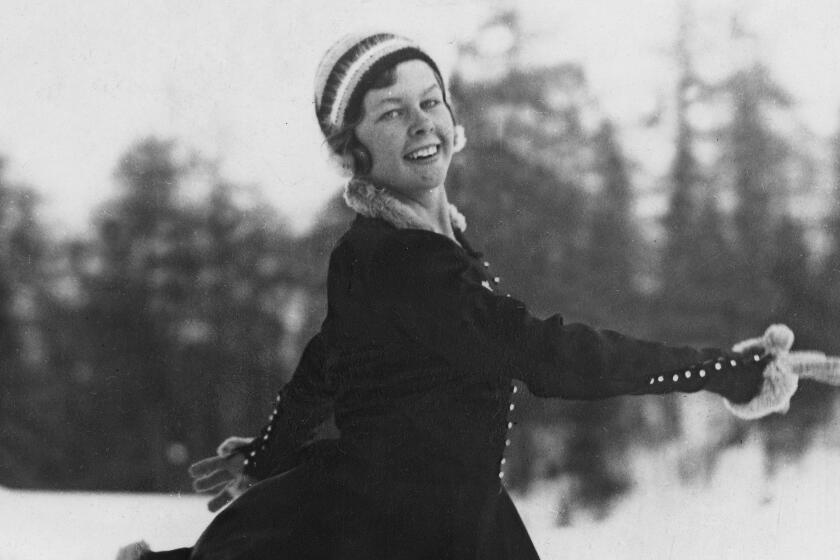Olympic Glory Isn’t All It’s Cracked Up to Be
All day, all night, all around the grounds of the United States Tennis Center, emotions overflowed.
An Olympic gold medalist howled in despair.
Nicolas Massu, who played a four-hour, five-set match against Mardy Fish in Athens to win that gold, played the second-longest match in U.S. Open history and lost Thursday night.
On Court 11, packed with cheering Chilean fans for him and noisy Armenian fans against him, the 10th-seeded Massu was upset by 31-year-old Sargis Sargsian, 6-7 (6), 6-4, 3-6, 7-6 (6), 6-4. It took 5 hours 9 minutes and at the end Massu bent over, exhausted and disgusted. Sargsian was serenaded by rooters who had chanted in Armenian all during the match. Only once, in a 1992 semifinal, had a match here gone longer when Stefan Edberg took 5:26 to beat Michael Chang 6-7, 7-5, 7-6, 5-7, 6-4.
Massu broke rackets and carried on a 10-minute argument with chair umpire Carlos Ramos after being penalized a game in the fifth set for his third broken racket, one that was bounced so hard it caromed as high as his head. Massu’s rant to Ramos was profane. His tirade an hour after the match was angry.
“I can’t believe I lost the match,” Massu said. “It’s hard to believe that this guy [Ramos] didn’t use the head a little bit. This guy come here, put to me two, three warnings. If I have to pay something I pay, no problem. But the third one? Unbelievable.”
The first warning for equipment abuse had come to Massu at 4-4 in the first set after he wrecked a racket. Ramos gave Massu a point penalty in the 10th game of the second set before taking away a game from him to start the fifth set.
In a statement, tournament referee Brian Earley explained why Massu was penalized a game. “There were three code violations for racket abuse,” Earley said. “Following the Grand Slam code of conduct, the first code violation resulted in a warning. The second violation resulted in a point penalty. The third violation resulted in a game penalty.”
Three crushed rackets had been discarded by Massu, stark proof of his anger.
The Olympic silver medalist didn’t have a good day either. Fish, seeded 26th, quarreled about line calls and hung his head after bad shots instead of fighting to hit better ones until he left a 6-3, 3-6, 1-6, 6-3, 6-3 loser to Czech qualifier Michal Tabara.
French Open champions grumbled and groaned as well.
Anastasia Myskina, seeded fourth, was dismissed, 7-6 (3), 6-3, in the second round by a fellow Russian, 17-year-old Anna Chakvetadze who is ranked 175th. And Gaston Gaudio of Argentina, seeded ninth, was a mostly passive participant in his 6-3, 2-6, 6-4, 6-4 loss to Thomas Johansson of Sweden.
Myskina considered the performance “a pretty bad match for me,” then said she was all done in. “I’m really empty right now,” the 23-year-old said. “I didn’t want to fight. I didn’t want to run. I didn’t want to do anything.” Paying customers should love hearing that. Gaudio, too, just shrugged and muttered, “Too bad,” as he walked away from the court.
But there were sounds of joy around the grounds.
Shikha Uberoi, an Indian American with an infectious laugh, embraced the gargantuan Arthur Ashe Stadium court, clapped for herself and for her opponent Venus Williams after good shots for both, giggled with glee when Williams ended an enthralling rally with a winning passing shot and later spoke with awe about the way the lights made her racket sparkle.
Uberoi, born in Bombay 21 years ago, raised mostly in Princeton, N.J., and ranked 275th, fought hard against 11th-seeded Williams before losing a second-round match, 7-5, 6-1.
“I was just crying,” Uberoi said, “because this is like the biggest party I’ve ever been to in my whole life. I’ve never had anyone cheer for me that loud in my whole life.
“I just thought Arthur Ashe Stadium was the most beautiful thing I’d ever seen. It was truly gorgeous. The lights, I love the way my racket shines under the lights.”
It was a good day to be Andre Agassi too. Just when it looked as if the oldest man in the draw was struggling, his 20-year-old German opponent, Florian Mayer, pulled a hamstring and had to retire, handing Agassi a 7-5, 2-6, 6-2, 1-0 win. Then Mayer grumbled. “If I had no injury,” he said, “I think I had good chances to beat him.”
*
(BEGIN TEXT OF INFOBOX)
Working Overtime
Longest men’s matches, in hours and minutes, in U.S. Open history:
*--* 5:26 Stefan Edberg def. Michael Chang, 6-7, 7-5, 7-6, 5-7, 6-4, in 1992 semifinals 5:10 Sargis Sargsian def. Nicolas Massu, 6-7, 6-4, 3-6, 7-6, 6-4, in 2004 2nd round 5:01 Ivan Lendl def. Boris Becker, 6-7, 6-2, 6-7, 6-3, 6-4, in 1992 4th round
*--*
More to Read
Go beyond the scoreboard
Get the latest on L.A.'s teams in the daily Sports Report newsletter.
You may occasionally receive promotional content from the Los Angeles Times.




